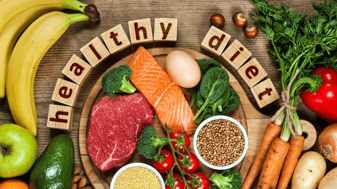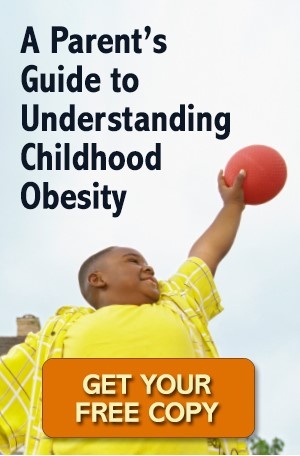 Remember when your parents used to remind you to eat your vegetables so you can grow big and strong? Well, it’s actually important at every stage of life to get the proper nutrition so your body can be healthy. There are signs to when your body is missing key nutrients, and each symptom can be correlated to a specific nutrient.
Remember when your parents used to remind you to eat your vegetables so you can grow big and strong? Well, it’s actually important at every stage of life to get the proper nutrition so your body can be healthy. There are signs to when your body is missing key nutrients, and each symptom can be correlated to a specific nutrient.
1. You’re Tired
When you are feeling fatigued for no reason and are having trouble concentrating, an iron, vitamin D, or B12 deficiency may be present. This is the type of exhaustion that comes even though you are getting enough sleep, aren’t experiencing high levels of stress, and aren’t sick.
Being low in vitamin D is most likely to happen during the winter months when people are getting less sun exposure. Taking a supplement or getting a light lamp for the winter months can counteract this. Vitamin D can also improve your overall mood. To get more Vitamin D, you can incorporate tuna, salmon and fortified foods like orange juice and cereal into your diet.
B vitamins help your body make red blood cells and regulate sleep and energy levels. Iron helps transport oxygen via red blood cells throughout the body. So, lacking in either of these can seriously affect your body’s functions. You can take supplements for both, but if you want to get these nutrients via food, you can add chickpeas, beans, spinach, asparagus, and red meats into your diet.
2. Your Hair, Skin, and Nails
Your hair, skin, and nails rely on similar nutrients to maintain health. It is normal to lose hair strands throughout a normal day. However, if you see clumps of hair loss it may be a sign you have a nutrient deficiency. The amount of what you consider an abnormal amount of hair to lose will depend on your hair’s natural thickness, some people lose more than others naturally. If you are experiencing abnormal hair loss, you may be deficient in iron. If your hair becomes brittle or dry, it may be a sign you need more fatty acids and protein.
If you have dry skin or random rashes, it may not be a lack of moisturizer, but a lack of vitamin A. You can boost your vitamin A levels by eating orange produce like carrots and sweet potatoes, and leafy green vegetables like spinach or kale.
Brittle and “spoon” nails are also a sign of low iron. When your fingernails become soft and bend away from your finger at the edges, this creates a “spoon” shape. We sometimes see this in infants’ fingernails, but it goes away as they age.
3. Your Mouth and Tongue
The state of your mouth and tongue can tell you a lot about what nutrients are and are not present in your body. If your mouth feels like it’s itchy or burning you may be experiencing “burning mouth syndrome”. This is a sign of not having enough folate, thiamin, and B6. You can get these nutrients in bananas, beans, spinach, and fortified cereals.
The signs of low iron, zinc and B vitamins and riboflavin are cracking and inflammation at the corners of your mouth or a pale or swollen tongue. Increase your riboflavin levels by eating eggs, lean meats, and green vegetables.
4. Weakness and Muscle Cramps
If you're feeling weak and experiencing muscle cramps, it could be a sign that you're deficient in calcium and/or magnesium. These minerals are essential for maintaining strong bones and healthy muscle function. You can get more of these nutrients in your diet by eating whole grains, nuts and seeds, legumes, and even dark chocolate.
5. Frequent Colds or Infections
Nutrients like vitamin C, zinc, and iron play a crucial role in maintaining a healthy immune system, so if your body isn't getting enough of them, you may start to notice that you're getting sick more often.
Like the sailors of history who fell victim to scurvy, you should increase your vitamin C intake by eating citrus fruits. You can also get this nutrient from broccoli, cauliflower, peppers, tomatoes, and Brussel sprouts. To increase you zinc levels, you can eat legumes, seeds, and whole grains. Supplements are also always an option.
6. Bone Pain
Feeling pain in your bones is a real concern. Some children experience growing pains when they go through puberty, and adults can get very similar pain if you become deficient in vitamin D for a prolonged period of time. Luckily, this nutrient is easy to come by in both supplement and food form.
Salmon, tuna, shrimp, and mushrooms are all easy ways to get this bone strengthening vitamin into your system. You can also eat fortified foods. You can identify these foods via nutrition labels and sometimes it’s even printed on the boxes, like cereals, milk, orange juice, and yogurt.
7. Your Digestive System
While poor digestion doesn’t always mean a lack of nutrients, it is nutrient related. Diarrhea is typically a sign your body isn’t absorbing what you put into it. Whether that is supplements or the food you eat. This can stem from an infection, certain drugs, and heavy alcohol use. If something like this persists you may want to see a doctor because it could be indicative of a larger issue.
Talk to your Doctor
It's important to note that these symptoms can have other causes as well and that a visit to a healthcare provider is needed to properly diagnose any underlying issues. Moreover, some of these deficiencies can be serious and may require more than just dietary adjustments. The key is to be aware of how your body feels and reacts to what you are eating. In general, a balanced diet that includes a variety of fruits, vegetables, whole grains, lean protein, and healthy fats is the best way to ensure that your body is getting all the nutrients it needs.
If you're experiencing any of these symptoms, it's a good idea to talk to your healthcare provider or a dietitian to see if nutrient deficiencies might be the cause. They can help you determine which specific nutrients your body might be lacking and can help you come up with a plan to get more of them in your diet. Additionally, if you have a long-term restrictive diet, consider discussing with a dietitian to be sure that you are not missing any essential nutrients.
Our Medical Specialty Center - Your Everyday Health Care Clinic – can help you with your dietary and nutrition concerns! Schedule an appointment by clicking the link below.



